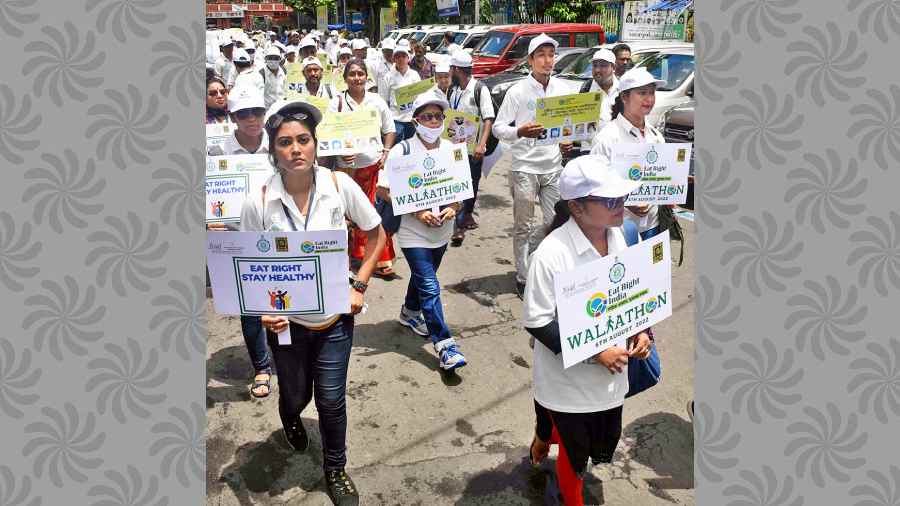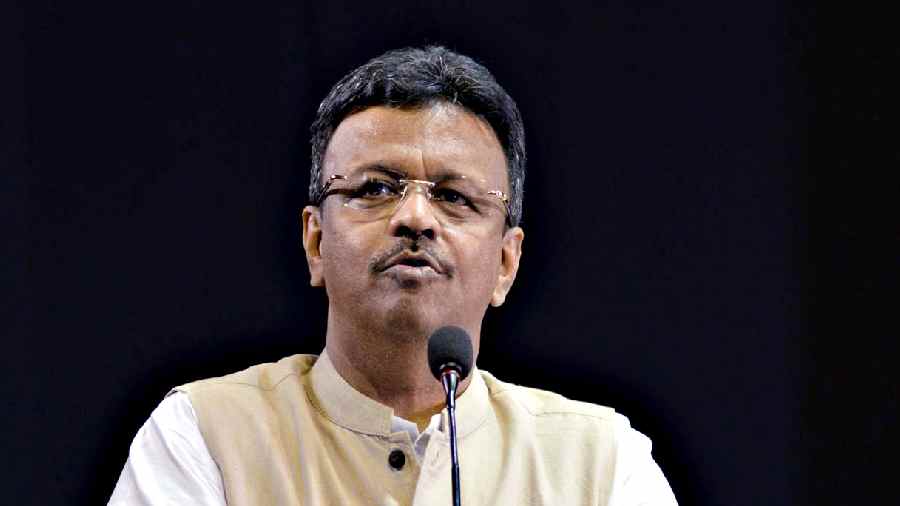The focus of awareness campaigns should be on informing people that they can undergo dengue and malaria tests for free at the Kolkata Municipal Corporation-run clinics, mayor Firhad Hakim told doctors and officials of the civic body on Saturday.
He said one should not neglect a fever and get the test done.
Hakim also asked officials to see that dengue positive reports were collected from all private labs so that the civic body had a clear picture of places from where dengue cases were being reported.
A 12-year-old boy, who was a resident of Mahim Halder Street in Kalighat, passed away from dengue on Thursday.
Hakim referred to the boy’s death while speaking to reporters after the meeting.
Hakim said that since the KMC’s clinics conduct free Covid, malaria and dengue tests, the civic body’s focus would be to identify those running fever and ask them to get tested for free at its clinics.
The KMC now runs awareness campaigns from autorickshaws that roam, one for every ward, twice every week.
In Saturday’s meeting, Hakim asked officials to increase the autorickshaws campaign to five or six days a week.
It may not be possible to cover all households every week, therefore a campaign using microphones will help to reach out to more people.
“A 12-year-old boy passed away from dengue. It was very unfortunate. We conduct free dengue, malaria and Covid tests in our clinics. People can come to our clinics and get tested for free,” Hakim said.
“We will go on door-to-door visits to identify people who are running a fever and ask them to see a doctor in our clinics and get tested,” he said.
The mayor added that the KMC would, if required, break open locked vacant properties and clean them so that mosquito breeding grounds inside the plots are destroyed.
“We will first issue a notice asking the owner to clean the property,” Hakim said.
The notice will be pasted on the boundary wall or any other place in the plot.
“If the owner does not clean it, we will clean the place on our own and recover the money spent on cleaning by adding the amount to the next property tax bill,” he said.
The website of the World Health Organisation (WHO) says that the dengue virus is “transmitted to humans through the bites of infected female mosquitoes, primarily the Aedes aegypti mosquito”.
The website added that the mosquito “could breed in natural containers such as tree holes and bromeliads, but nowadays it has well adapted to urban habitats and breed mostly in man-made containers, including buckets, mud pots, discarded containers and used tyres, storm water drains etc., thus making dengue an insidious disease in densely populated urban centres”.
The undisturbed water in these containers is the ideal place where the egg laid by the mosquito can turn into an adult mosquito, which is why it is advised to keep containers closed or throw away the water once a week, said a KMC official.
A senior official of the KMC said that 2020 and 2021 had very low dengue and malaria infection, but the numbers would be higher this year.
“People are stepping out in large numbers. We are close to pre-pandemic times in terms of people’s movements. There is always a risk of dengue explosion in such a scenario,” said the official.
About 250 dengue cases have been reported from Kolkata since January this year.
Eat right

Picture by Sanat Kr Sinha
A walk to promote healthy eating and informed decision-making in choosing the food was organised by the Kolkata Municipal Corporation and the state health department on Saturday. The walk started opposite the KMC headquarters around noon and wound its way through various streets in the Esplanade-New Market area. “An initiative called Eat Right is taking shape across the country. Saturday’s walk was part of the Eat Right campaign,” said an official of the KMC. The official added that the Eat Right campaign stressed eating seasonal fruits and sustainable food. “These are easily and locally available stuff,” he said. Mayor Firhad Hakim and deputy mayor Atin Ghosh walked along with KMC officials and food safety officers of the civic body.
